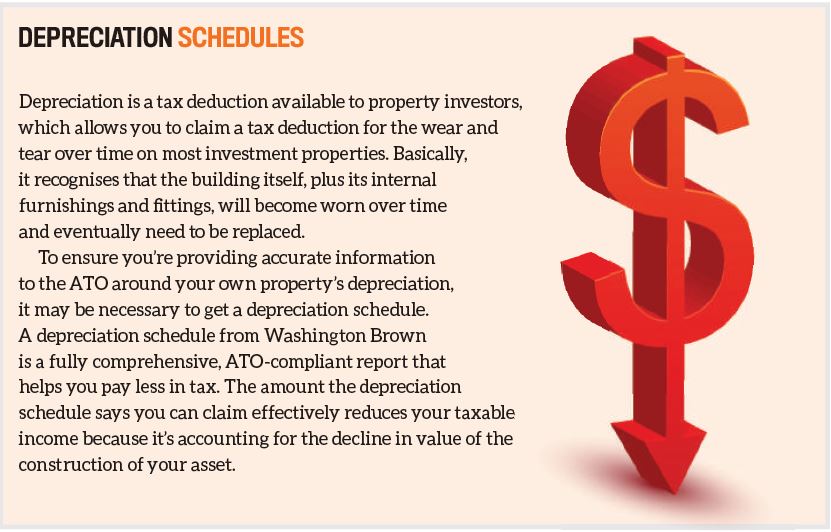Founded in 1978, Washington Brown has grown to become one of Australia’s most respected quantity surveying organisations. Tyron Hyde heads up the organisation as CEO.
YIP: Tell us a bit about yourself. How did you come to head up Washington Brown?
Tyron Hyde: When I grew up, I never saw myself as becoming an expert in property depreciation. I wanted to be a dentist, but I decided I didn’t really want to spend my day looking in other people’s mouths – and so I went and became a construction economist instead. But in 1991, just as I was finishing my degree, interest rates for homebuyers and developers alike were sky-high, so construction in Sydney had pretty much ground to a halt.
The only way I could get a job with the degree I had was to volunteer; I did a year with Washington Brown as a cadet, working for free. After they hired me full-time, I began a division of the tax/depreciation side of the business. That exponentially grew to become so big that I bought out the other side of the business. So I guess the short version is that I started working there and loved the company so much that I bought it!
[Depreciation] is a significant part of the equation you should be doing before you buy, because it’s the only non-cash tax deduction on property
YIP: It’s probably fair to say that most of the conversation around investment property involves appreciation of value. So why is property depreciation so important?
TH: First of all, I want to be very clear – you should only buy property with the aim of it going up in value. There’s no benefit to buying property just for a tax break. But when you are buying investment properties, you do want to be able to take advantage of the tax deductions that are available.
One of those is depreciation, which essentially amounts to property wear and tear. This is because investment properties are bought on the basis of generating income, and accordingly wear and tear is factored in, just like with, say, office equipment.
KEY MILESTONES
1978: Washington Brown is established
1991: Tyron Hyde begins working at Washington Brown as a cadet
1992: ATO ruling highlights quantity surveyors as the appropriate body to estimate construction costs for property investors
1997: Tyron Hyde starts Washington Brown’s depreciation division
2000: Hyde becomes a majority owner and director of Washington Brown
2013: Claim It! – an Australia-first book on property depreciation – is published
2017: Washington Brown assists the Treasury to formulate the revised depreciation law. Hyde becomes a Fellow of the Australian Institute of Quantity Surveyors, the highest level that can be achieved in the industry
2018: Keep Claiming It! A Guide to Property Depreciation, an updated version of Claim It!, is published
2019: Hyde co-authors a new book, Secrets of Property Millionaires
YIP: Do you think property depreciation is underutilised by investors? How does it fit in with negative gearing?
TH: Depreciation is part of the negative gearing equation. But there’s a disparity between how negative gearing is reported and what it actually is – depreciation is just one of many factors.
Nonetheless, it’s a signifi cant part of the equation you should be doing before you buy, because it’s the only non-cash tax deduction on property. Every other tax deduction you have as an investor will require you to pay out.
But it’s complex; depreciation for property looks at a huge number of factors, like whether the property is residential or commercial, whether it’s new or old, what building materials were used – all the way down to the carpet on the floor.
A specialist like Washington Brown can help you navigate the intricacies and decide whether the purchase is going to be worth your while.
“Whilst the maximum depreciation applies to new property, this doesn’t necessarily mean that a new property is the best option”
YIP: What are some of the key things investors need to know when trying to utilise property depreciation?
TH: Look at the cash flow.
I’m a big believer in understanding the cash fl ow of an investment property – repayments versus rent is the obvious one, but there are a ton of others. Prospective buyers need to understand the full implications of other costs that arise, particularly entry and selling costs – stamp duty, legal fees, land tax, property management, agency costs, advertising/marketing, capital gains and so on. A lot of investors don’t factor these in from the beginning and get disappointed when it comes time to liquidate a property.
Depreciation benefits are geared towards buying newer properties. However, you can still claim on properties built after 1987. Whilst the maximum depreciation applies to new property, this doesn’t necessarily mean that a new property is the best option for you.
You can still make money buying new, of course – but you should seek independent fi nancial advice and do the numbers prior to investing in any product. Get a second opinion if you feel you need it.
.....................................................
ABOUT THE EXPERT
To find out more about how Washington Brown can help you better understand property depreciation for your investment property, visit www.washingtonbrown.com.au
To purchase Tyron Hyde’s book, Keep Claiming It! A Guide To Property Depreciation, visit www.washingtonbrown.com.au/ blog/keep-claiming-it

